How does it affect my horse?

The surfaces that equine athletes train and compete on are a key factor in maintaining their soundness and ability to perform at their best. Most competitive riders ensure that their training arenas are up to scratch and can usually rely on competing on superior surfaces at show venues, but not all equestrians have access to quality surfaces. As winter drags on and most of the interior of the country gets drier and dustier, so the ground gets harder, and this is not ideal for those who regularly hack out or have inadequately maintained arenas.
The ideal surface
Most horses benefit from being exercised on a variety of surfaces, as this encourages optimal skeletal and muscular development. Working on firmer ground promotes the growth of hoof tissue, and concussive exercise stimulates bone density, thus strengthening the skeleton. However, a horse with arthritis in the joints should not be trotting out on hard roads, and too much of this type of work can lead to jarring. Deeper surfaces require greater muscular effort from the horse and more flexibility in ligaments, tendons and joints, which can lead to strain (see New ground in HQ115, October 2016). The ideal surface allows the horse to dig his toe into the ground so that he has something to push off against, while the worst has no give or is too soft and collapses under the horse’s foot.
When the work surface becomes too hard, the absorbing mechanism of the hoof is reduced and the shock as the foot hits the ground is distributed throughout the horse’s foot and leg instead of being dissipated into the ground. Working your horse consistently on hard ground puts increasing pressure on the soft tissue of the legs as well as on the coffin, pastern and fetlock joints. It follows that galloping and jumping in these conditions would increase that force and exacerbate the possibility of more serious injury.
この記事は HQ magazine の October 2017 版に掲載されています。
7 日間の Magzter GOLD 無料トライアルを開始して、何千もの厳選されたプレミアム ストーリー、9,000 以上の雑誌や新聞にアクセスしてください。
すでに購読者です ? サインイン
この記事は HQ magazine の October 2017 版に掲載されています。
7 日間の Magzter GOLD 無料トライアルを開始して、何千もの厳選されたプレミアム ストーリー、9,000 以上の雑誌や新聞にアクセスしてください。
すでに購読者です? サインイン
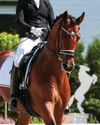
The Science Behind Tapering
The science behind tapering
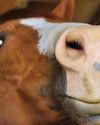
Horse Treats
The ultimate guide
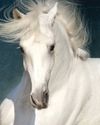
Horsey Hair Care
Tips and tricks for a healthy mane and tail
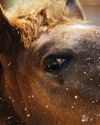
Horsey Hydration- The Importance Of Water In Winter
The importance of water in winter

A Horseback Safari
Abelana Game Reserve

The Psychology Of Riding Performance
Intrinsic motivation, part 7
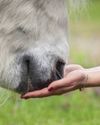
10 Best Life Lessons From Horses
Life lessons from our horses
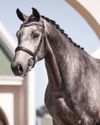
Breaking New Ground
The evolution of the Callaho Online Auction
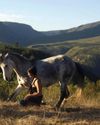
Horse Psychology 101
Part 3: The horse's cognitive abilities
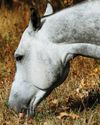
Colic Part 1
An owner’s worst nightmare